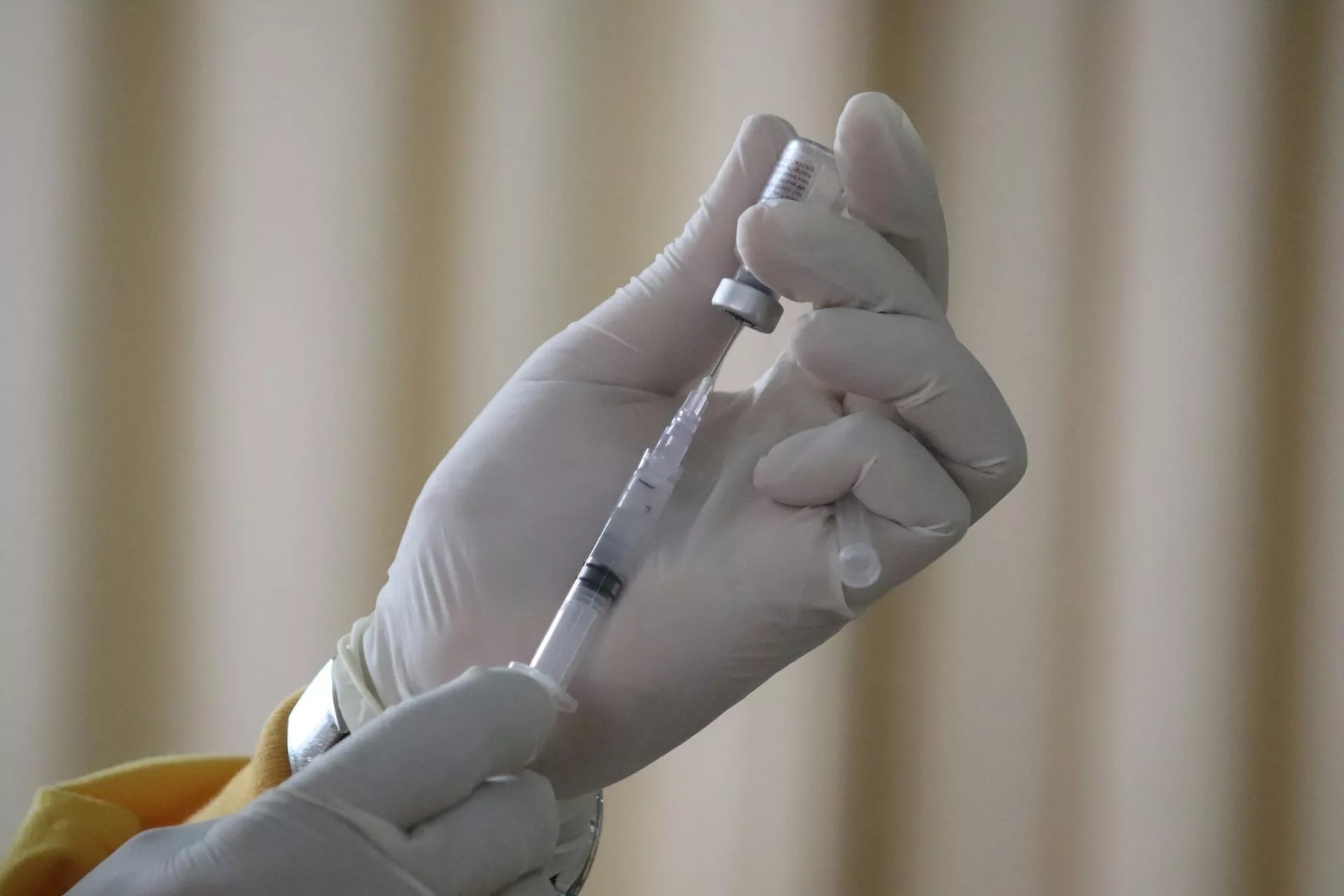Currently, no HIV vaccine has been licensed—new findings shed light on HIV vaccine design. Photo credit: Mufid Majnun via Unsplash
A groundbreaking study..has ignited a spark of optimism in the long fight against HIV…
Human Immunodeficiency Virus (HIV) is a virus that attacks the cells in the body’s immune system, weakening a person’s ability to fight everyday infections and diseases. Over time, progressive failure of the immune system (Acquired Immune Deficiency Syndrome, or AIDS) can lead to significant vulnerabilities to life-threatening diseases, including deadly viral infections and cancer. A groundbreaking study published in Science Translational Medicine at the beginning of the year, led by the Vaccine Research Center at the National Institutes of Health (NIH) in the United States, has ignited a spark of optimism in the long fight against HIV, showcasing a promising strategy to target the virus using antibodies.
An estimated 39 million people worldwide live with HIV, with almost one million lives being lost from HIV/AIDS each year. In some countries, particularly across Sub-Saharan Africa, it is the leading cause of death. So far, infection with HIV has proved to be incurable. Once the virus has infected human cells, preventing its spread through the body becomes challenging—the virus integrates itself into the host’s DNA during the virus’ life cycle, and the rapid and error-prone way that the virus copies itself leads to a high mutation rate. This means that each viral offspring differs from its predecessor, making it almost impossible for the immune system to stop the continuous infection.
In the study, Pegu et al. used antibodies to target the fusion peptide on the HIV envelope, the protein responsible for allowing HIV to enter cells. This strategy is part of a new vaccine approach termed broadly Neutralising Antibodies (bNAbs). The technology focuses on antibodies that can bind to specific circulating viruses and prevent their entry into host cells. Antibodies are proteins produced by the body’s immune system that bind to infectious agents (such as viruses) and prevent their entry into cells, whilst also signalling their presence to the immune system as targets for elimination. By harnessing antibodies that specifically target portions of HIV, the researchers have unlocked a promising avenue for vaccine protection against the virus.
The study was performed on rhesus macaques, a monkey species with immune systems similar to that of humans. The monkeys were injected with a range of protective antibodies and then exposed to a strain of Simian-HIV (SHIV). Three different types of HIV antibodies were tested: two types from monkeys previously infected with HIV, and one from a person living with HIV. Of the eight monkeys receiving antibodies only one became infected with SHIV. All the monkeys exposed to SHIV who did not receive antibodies (the control group) were infected, offering compelling evidence of the efficacy of this vaccine approach. The authors hint that future studies could look at the possibility of combining multiple kinds of antibodies, as this approach would increase the likelihood of preventing infection against diverse HIV variants—one of the characteristics of HIV that makes current treatment so elusive.
These significant outcomes underscore the potential of bNAbs as a cornerstone of future HIV vaccine development efforts, and future research into an effective HIV vaccine for humans will likely expand on the insights from this study. The research by the NIH group represents a pioneering proof-of-concept study that antibodies can protect against viral infections. The significance of this study extends beyond the realm of HIV/AIDS research, encapsulating the collaborative efforts of scientists, clinicians, and advocates in the global fight against infectious diseases. By clarifying how antibodies can protect us from various infections, researchers can also refine vaccine design and delivery strategies to enhance their safety, efficacy, and durability in humans.
These significant outcomes underscore the potential of bNAbs as a cornerstone of future HIV vaccine development efforts…
As we navigate the complexities of vaccine development each breakthrough brings us one step closer to realising the vision of an HIV-free world. Let us celebrate this milestone by renewing our commitment to advancing science, fostering multidisciplinary research, and developing novel tools to combat present and future pandemics.





